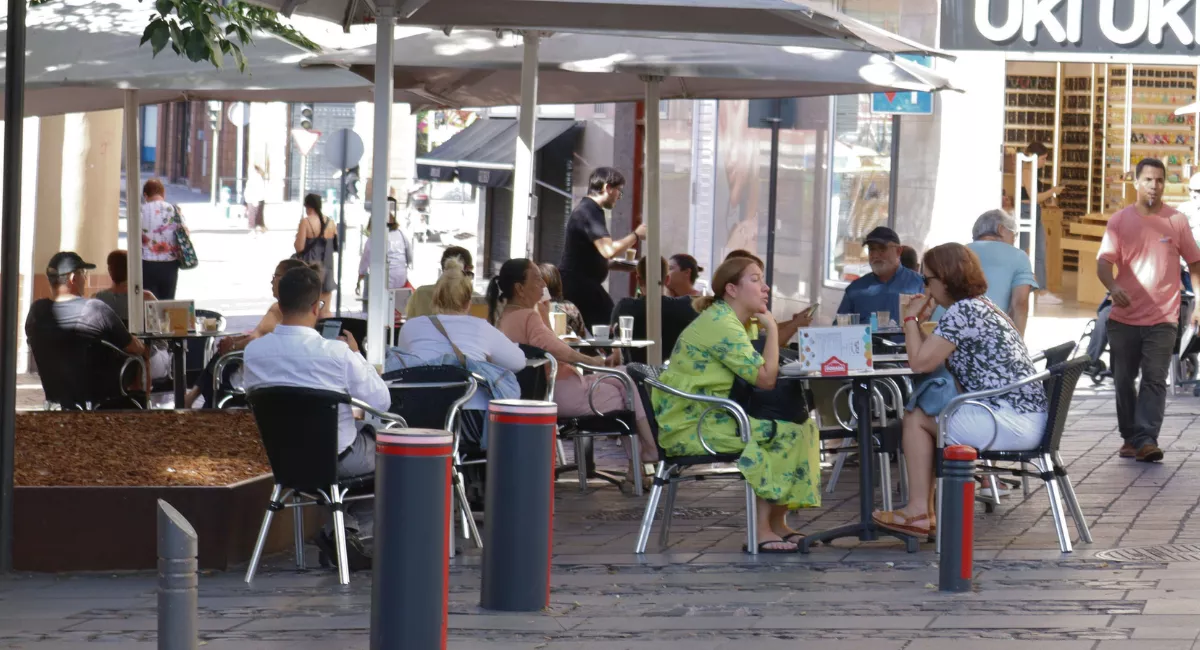
Costly burdens, a lack of generational succession and transformations in social habits are driving traditional bars in the Archipelago towards a quiet disappearance.
The figures confirm the trend: the Canary Islands have lost over a thousand bars in the last decade, according to INE records. This decline, although less abrupt than in other mainland regions, directly impacts one of the most recognisable symbols of everyday life in the archipelago.
In the islands, as in much of Spain, the bar is not just a business. For decades, it has been a meeting point, a social hub, an improvised office, and a daily canteen. However, today many of these establishments, which have been open for generations, are shuttering with no successor in sight. And when they do, it’s not just a bar that disappears: a slice of the neighbourhood vanishes too.
Tax and regulatory pressure José Miguel Sánchez, president of the ARES (Las Palmas de Gran Canaria Restaurant Association), sums it up clearly: “A traditional bar is subject to the same requirements as a Michelin star restaurant.” Over more than two decades in the sector, he has witnessed the multiplication of administrative and fiscal demands, making the continuity of many family businesses unviable.
“The typical neighbourhood bar is self-employment: the owner works, their partner, the daughter, the brother-in-law… But with rates, licenses, social security and surcharges, there comes a point when the figures just don’t add up,” he explains. In his view, bureaucracy and taxation are not designed for small establishments that operate on minimal margins and limited means.
No possible succession Added to this is a generational handover that is not happening. “The children no longer want to continue with the bar. They have experienced it since they were small and don’t want to dedicate their whole lives to something so hard and poorly paid,” Sánchez asserts. Even when some family member wants to help intermittently, the regulations prevent it: “I can’t have my daughter lending a hand because I have to pay her according to the agreement and register her… and she just wanted to save for her driving licence.”
In many cases, when the owner retires, the bar disappears. There is no transfer, no sale, no reconversion. The premises close and become something else: an office, a franchise, an empty window display. And with it goes part of the everyday memory of the neighbourhood.
Bars that endure Paradoxically, bars with a personal touch and familiar dishes continue to be in demand. “Consumers want identity, they want to recognise the waiter and order the usual,” Sánchez points out. In his view, the disappearance of chains like Telepizza or Lizarran in Las Palmas and the survival of establishments like La Pizza Real or Bar Pachichi demonstrate this.
“What works is what connects with people. But these bars also need to survive, and for that, we must make things easier for them, not complicate them,” he adds. For ARES, municipal and regional policies should focus more on protecting these spaces “because they are part of the city’s DNA.”
Their importance as a social fabric Beyond their profitability, traditional bars have played a key role in building social fabric. “In Spain— and the Canary Islands are no exception— the bar is an extension of the public sphere. It’s not only about consuming; it’s about conversing and belonging,” explains sociologist Claudia López Plácido.
In towns, this role is accentuated. “Where there are no day centres, associations, or adequate public transport, the bar is the only active leisure space, especially for the elderly,” she states. Their disappearance creates a void that is not always filled. “Many Canary Island municipalities with an aging population see how, when the last bar closes, community life also fades.”
Changes in consumption Traditional bars also face a changing environment, marked by transformations in purchasing power and the type of hospitality offerings available. According to sociologist Claudia López Valido, it’s not so much a lack of interest in going to bars, but rather that many of the new establishments do not cater to the preferences or economic capabilities of the local population.
“We see how brunch cafes or specialty bars with exorbitant prices proliferate, which are not designed for residents but rather for a type of client with more resources, often foreign,” she explains. In this context, going out to a bar is no longer a frequent leisure option, not for lack of interest but due to issues of access and style: “For example, I might go to a brunch for the experience, but it’s not something I will do daily.”
Gentrification and displacement In tourist districts or areas of growing residential demand, such as some along the coast of Las Palmas, property pressure has caused a silent replacement of the traditional bar. “Where there used to be a bar with a home-cooked menu, now there’s a brunch cafe with prices prohibitive for the local population,” explains Claudia López Plácido.
The sociologist links this phenomenon with gentrification: “A hospitality offering is being designed that doesn’t consider residents, but rather visitors with greater purchasing power. And that changes the neighbourhood. It changes who lives there, how life is lived, and what can be afforded.”
In her view, the disappearance of these bars is merely a symptom of a broader process of urban identity loss. An inevitable transformation The hospitality sector in the Canary Islands is not disappearing, but it is transforming. There are increasingly fewer traditional bars and more specialised establishments, franchises, or gourmet venues. Demand still exists, but the way to satisfy it has changed.
For the traditional bars to survive, nostalgia alone will not suffice. They need fiscal support, regulatory flexibility, and urban policies that understand their social role. Otherwise, they will continue to close one by one, and with each closure, the Canary Islands will lose not only a business but a part of its everyday culture.
















